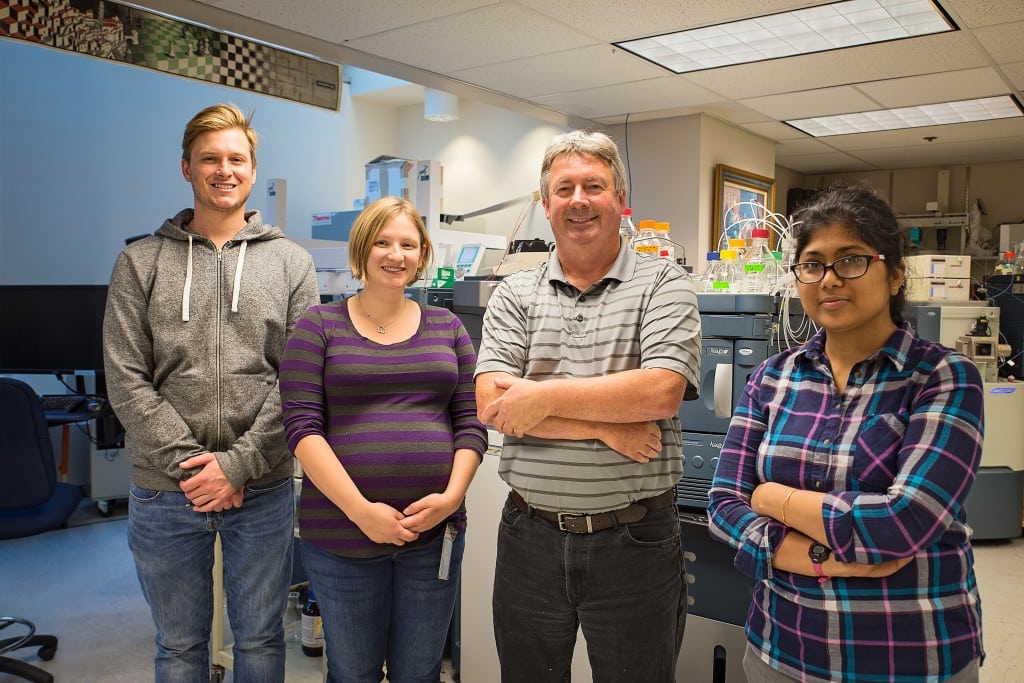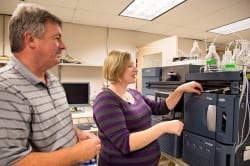
“It’s a micro-farm,” said Allan Rettie recently, talking of the home where he and his wife, Shannon, nurture a menagerie of creatures great and small. “If I was not doing science, I might have been a farmer” he said tongue-in-cheek. But it’s impossible to imagine Rettie “not doing science.” For 30 years he has been at the forefront of what’s happening in drug metabolism and drug interactions. And now he wants to quantify the impact of variants in your genes.
Rettie came to Medicinal Chemistry as a postdoc in 1985, joined the faculty in 1987, and became department chair in 2000. He serves on the editorial boards of scientific journals, NIH grant review panels, and organizations like the International Society for the Study of Xenobiotics. He teaches classes on drug metabolism and organic medicinal agents and runs an expanding research group that has its roots in drug metabolism.

“We plan to create an encyclopedia of gene variations in important drug-metabolizing enzymes that affect drug responses and make it available to the clinical community in an easily accessible format.”
–Allan Rettie
Rettie is currently focused on examining the role genetics plays in drug response, a field called Pharmacogenomics. Some people carry potentially harmful gene variants, and for these people an average drug dose can pose significant health risks.
Consider the commonly prescribed drug warfarin, a “blood thinner” used to treat heart patients and others. The wrong dosage can have a number of negative effects, like excessive bleeding, with disastrous results for patients. Understanding how drug metabolism genes affect the response to warfarin can help health care providers target the dose specifically to individual patients. However, there is currently no easy way for clinicians to know how new gene variants affect treatment with warfarin and other drugs with low safety margins.
With their latest NIH grant, Rettie; Doug Fowler; and colleagues in the UW Department of Genome Sciences aim to create a comprehensive database of drug-metabolizing enzyme variants that affect a patient’s reaction to commonly used drugs. The project, called Functionalization of Variants in Clinically Actionable Pharmacogenes (F-CAP), will catalog the functional effects of all amino acid variation for five important pharmacogenes during the three-year grant period and make the data available to the clinical community in an easily accessible format. “It’s quite ambitious, but we are capitalizing on new, high-throughput experimental approaches that should help us reach the target,” Rettie said.
Perhaps it’s the farmer in Rettie that inclines him to look ahead, even as he grows F-CAP. He is also working on a ‘suicide gene’ system for personalized T-cell applications in cancer therapy. “Collaborators in Germany provide the immunology expertise while we focus on the drug metabolism side of the project.” Finally, Rettie is interested in the genetics of people in historically isolated and underserved populations. “Everyone should be given the opportunity to be included in the precision medicine revolution.”
–Caryl Corsi
Want to study Medicinal Chemistry with researchers like Allan Rettie? Click here to learn about MedChem and to apply